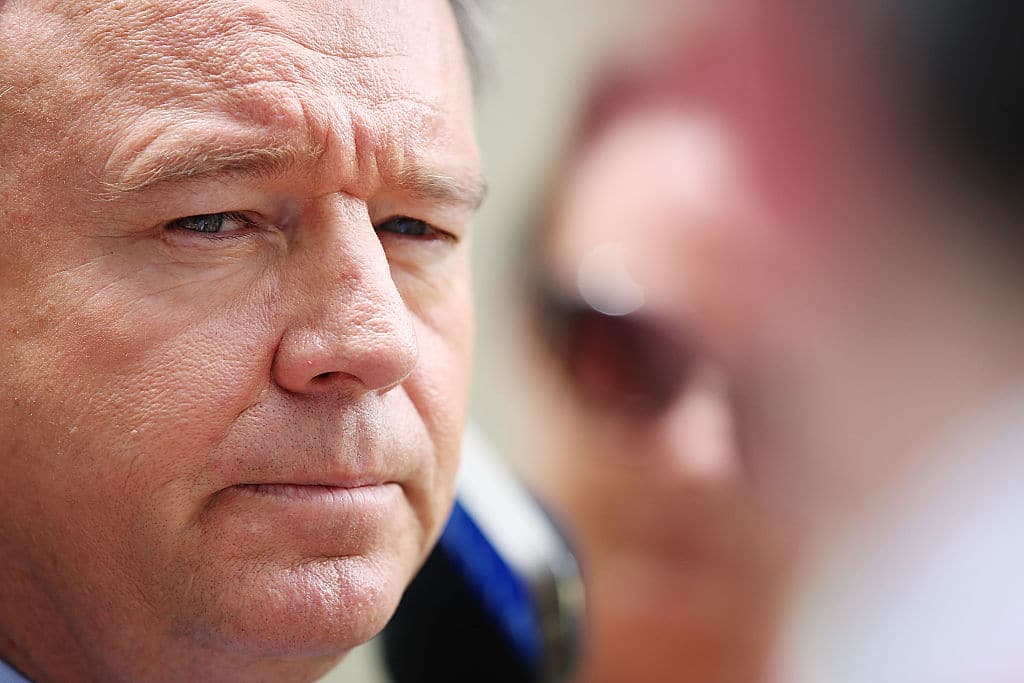Hunter federal MP and former Australian Minister for Defence Joel Fitzgibbon shares his thoughts on the recent crisis in Afghanistan.
Back in 2007, my first commitment abroad as Australia’s Minister for Defence was a meeting in Edinburgh.
There, on a cold December day, I attended my initial gathering of ministers representing countries operating in a part of Afghanistan known as Regional Command South.
I felt troubled during the long flight to Scotland.
My recently acquired access to the real Afghanistan war story had left me feeling frustrated and concerned.
My lack of confidence in the direction of the Afghanistan campaign had been heavily influenced by a senior Australian intelligence officer.
His guidance had not been challenged by senior Defence leadership.
By 2007 our original mission objectives in Afghanistan had been long-ago achieved.
Osama bin Laden was gone and al-Qaeda’s presence and international reach had disintegrated.
Afghanistan had ceased to be a threat to the safety of Australians.
Afghanistan’s Taliban regime was gone, too.
A democratically elected government had been in place for three years.
The only thing left to do was to make it hard for the Taliban to return to power and play host to terrorist groups.
That meant giving the new government the capacity to keep the peace, develop an economy and to offer the local population something better than the life they had lived under the Taliban.
In Edinburgh, what I wanted to know was, first, were we clear in our minds about why we still had combat troops in Afghanistan?
Second, what was the benchmark for success?
And third, did we have a clear plan to achieve our objectives?
In my short time in the job, I’d come to strongly suspect the answer to the second two questions was “no”.
The new Labor government was not alone in its concerns about the vagueness of NATO’s objectives and strategy.
That became clearer to me with each NATO gathering I attended.
My United States and United Kingdom counterparts were frustrated, too.
Managing such a disparate group of international partners with different views about what success looked like had become a challenge.
But, keeping everyone in the tent was crucial to the ability to continue to describe the ongoing presence of foreign troops in Afghanistan as a “multi-national effort”.
The new Australian Government was keen to ensure that our objectives in Afghanistan were clear and our troops were being asked to put their lives on the line only for good reason.
There can be no endpoint in a war without clear mission objectives.
We were keen not to let our Alliance partners down.
However, we were right to resist attempts to have us take a lead role in Oruzgan Province after the Dutch withdrew from that role.
We could see no end to the war or what success looked like. We didn’t want to be immersed deeper.
‘e instead focused on a pathway out: building on the capacity and capability of the local Afghan security forces in the expectation they’d become capable of enforcing the rule of law and protecting the interests and authority of the democratically elected government.
Like our ISAF partners, we could not have imagined what a hopeless cause that would become.
We saw that this week, when Kabul became the latest and final city to fall with little resistance.
Tragically, a number of Australian soldiers lost their lives during our attempts to train Afghan troops.
Some on the battleground, having been abandoned by the Afghan National Army (ANA) partners they were mentoring.
Others were murdered in their own places of refuge by Taliban fighters masquerading as ANA soldiers.
Afghanistan is multi-ethnic, tribal and operates within borders established by outsiders.
Years of foreign invasions have hardened the resolve of its original inhabitants and largest ethnic group. It was ambitious to think it could be tamed.
We offered the local population something different but it seems their leaders didn’t want it badly enough.
Is it a better place for our time there?
Only time will tell.
Its new generation of Taliban leaders may or may not have learned from the mistakes of those who governed Afghanistan 20 years ago.
Hopefully, they will have at least learned that giving safe haven to terrorist groups will not be tolerated by the international community.
Maybe they’ll be conscious, too, that the country’s population, having had a taste of democracy, will hold higher expectations.
Taliban leaders will certainly want the international community to recognise the legitimacy of their rule. And, they will want foreign aid.
Of course, modern, wealthy western counties like Australia and the United Kingdom are not the benchmark for assessing whether Afghanistan becomes a better place.
Better than two decades ago is a more realistic hope for the Afghan people.
Whatever the result, our troops achieved a lot.
They did everything we asked of them with great skill, courage and commitment.
We will continue to honour them and remain eternally grateful to the 41 heroes who gave their lives in our name.
Lest we Forget.
Joel Fitzgibbon
Hunter MP
Get all the latest Canberra news, sport, entertainment, lifestyle, competitions and more delivered straight to your inbox with the Canberra Daily Daily Newsletter. Sign up here.
For more opinion:



